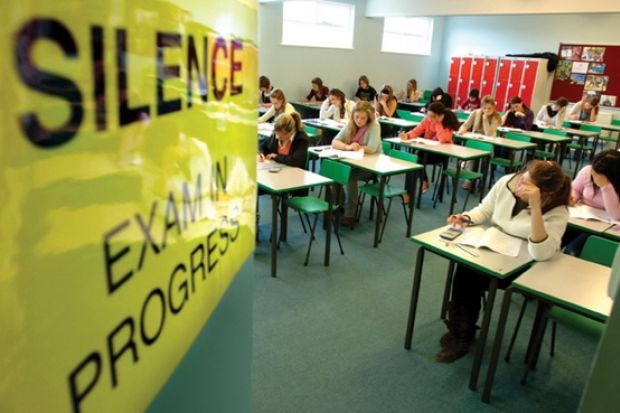More than two-thirds of 18-year-old university applicants in England who held an unconditional offer for a place on a course this year missed their predicted A-level results by at least two grades, an analysis has shown.
This 67 per cent share was 11 percentage points higher than the proportion of A-level students who held conditional offers and missed their predicted grades by the same amount, according to figures published by the admissions service Ucas.
The statistics, in Ucas’ End of Cycle Report 2018, are further evidence suggesting that unconditional offers – where applicants are offered a university place irrespective of what results they go on to achieve – affect exam performance.
Ucas’ report also reveals that the number of applicants receiving offers with an unconditional element is even higher than thought because of a huge growth in offers that become unconditional if an applicant chooses a university as their firm choice.
Figures released by Ucas earlier this year showed that about 23 per cent of 18-year-old applicants received at least one unconditional offer this year.
But once these “conditional unconditional” offers were also factored in, more than a third (34.4 per cent) of 18-year-olds in England, Wales and Northern Ireland received at least one offer with an unconditional element, compared with just 1 per cent in 2013.
The latest analysis on unconditional offers – whose growth has been blamed on universities feeling increasing pressure to fill places – led to growing calls to review the current system.
Matt Waddup, head of policy and campaigns at the University and College Union, said that unconditional offers “have made a mockery of exams and put students under enormous pressure to make snap decisions about their future”.
“The time has come for the UK to join the rest of the world and use a system of applying to university where students’ offers are based on actual results, not guesswork,” he said.
According to the Ucas analysis, unconditional offers have now become more likely to be offered to applicants who have lower predicted A-level grades. For instance, in 2014 and 2015, those predicted AAA were most likely to receive an unconditional offer, but in 2018 those predicted BBC became the most likely to receive one.
Applicants with higher predicted grades were, however, much more likely to receive a “conditional unconditional” offer.
The analysis also shows that applicants from the least advantaged areas were more likely to receive unconditional offers compared with those in the most advantaged areas, although again this situation was reversed for “conditional unconditional” offers.
Damian Hinds, the education secretary, said that while the use of unconditional offers had a “legitimate role” in some subjects, the very steep rise was “disturbing”.
“The systematic use of unconditional offers is not in the interest of students, and they should not be used just to get people through the door,” he said, adding that “where institutions cannot justify the rising numbers being offered, I have made clear to the Office for Students that they should use the full range of powers at their disposal to take action”.
Ucas’ report shows that in total 533,360 people were accepted on to an undergraduate course in the 2018 cycle, just 525 fewer than last year.
A third of the 18-year-old population in the UK were accepted, an increase of 0.4 percentage point on 2017, while the number of students placed from the European Union increased by 3.8 per cent.
Find out more about THE DataPoints
THE DataPoints is designed with the forward-looking and growth-minded institution in view
Register to continue
Why register?
- Registration is free and only takes a moment
- Once registered, you can read 3 articles a month
- Sign up for our newsletter
Subscribe
Or subscribe for unlimited access to:
- Unlimited access to news, views, insights & reviews
- Digital editions
- Digital access to THE’s university and college rankings analysis
Already registered or a current subscriber? Login








